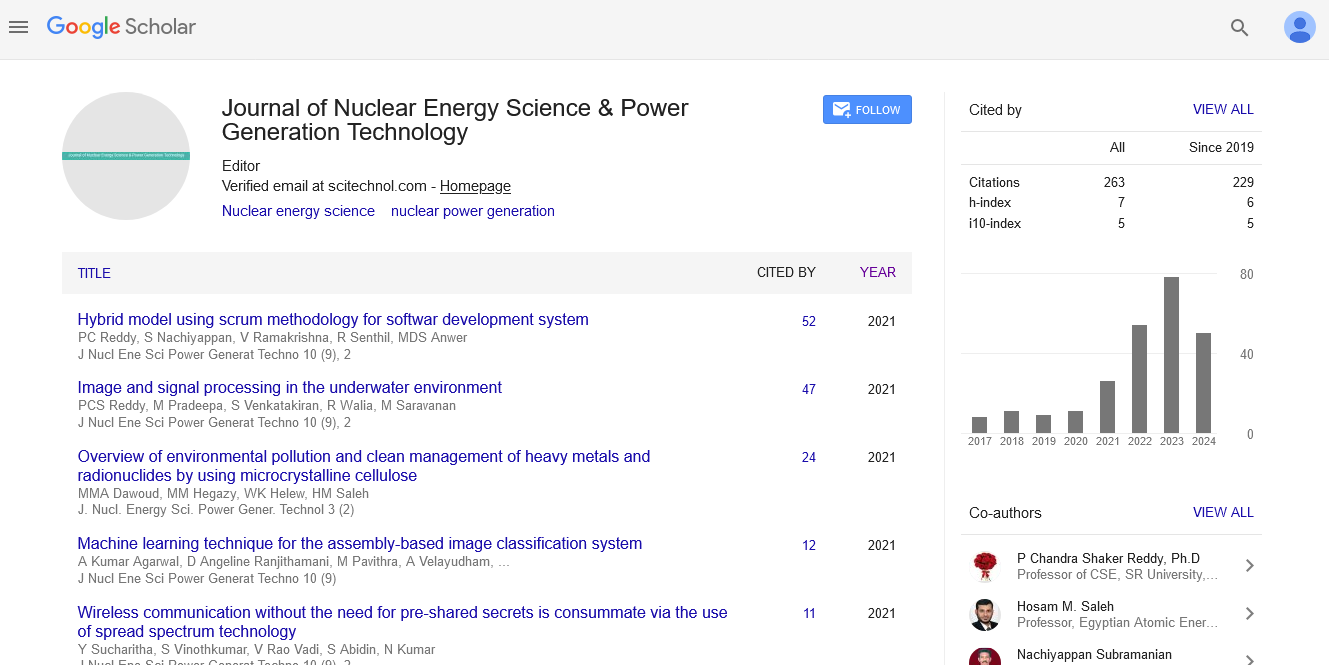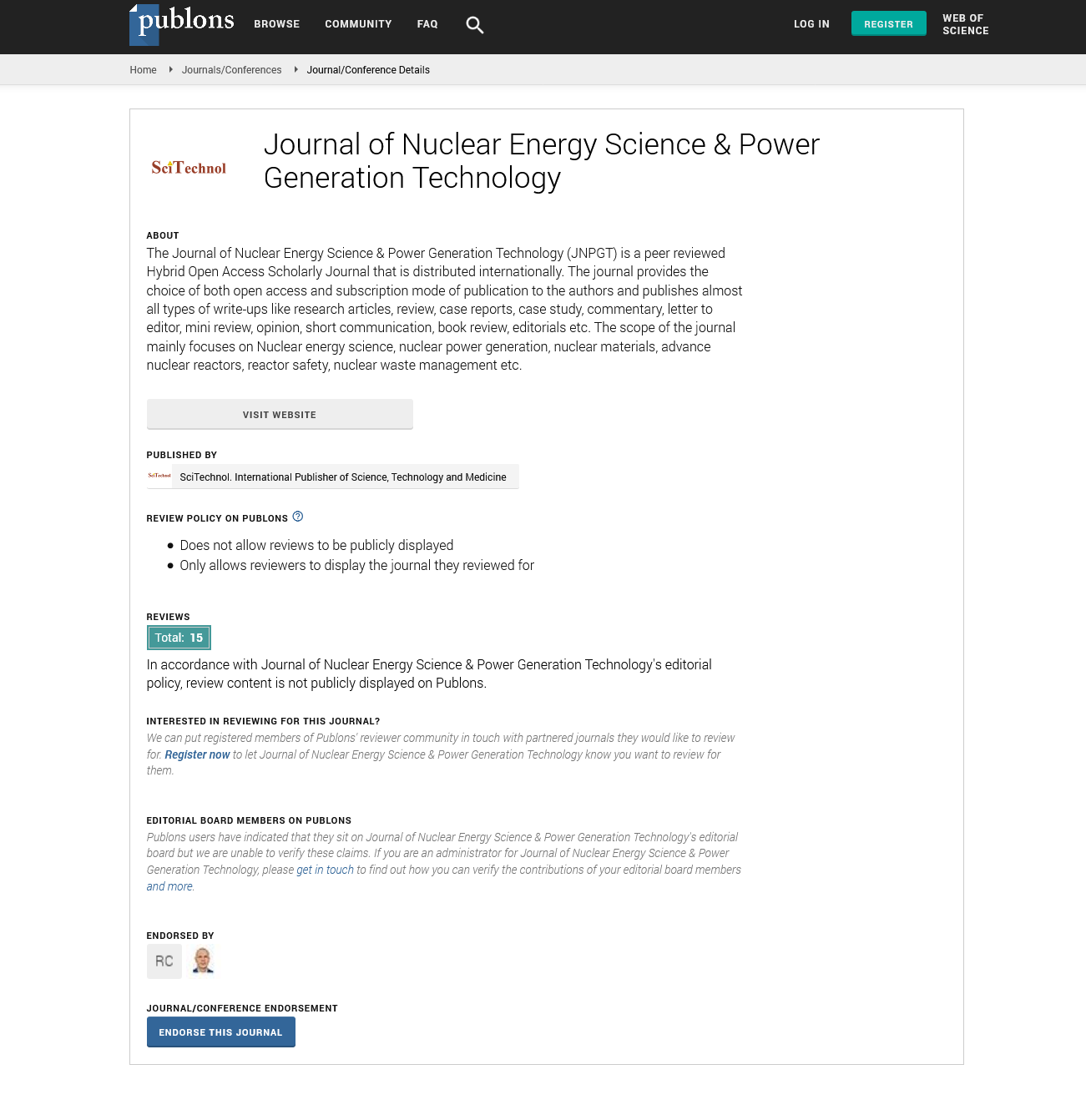Improving efficiency of a Kalina cycle by controlling condensation pressure for low-grade energy utilization
Enhua Wang
Beijing Institute of Technology, China
: J Nucl Ene Sci Power Generat Technol
Abstract
Kalina cycle is a promising technology for power generation from low-temperature heat sources. Conventional air-cooled Kalina cycle for geothermal power plants are designed with a fixed condensation pressure determined by the local summer ambient temperature, which causes a huge amount of exergy destruction when air temperature drops. If the power plant can vary the condensing temperature with the ambient conditions, the plant’s annual average thermal efficiency would be improved. To address this challenge, this paper proposes a method to improve the energy efficiency of a Kalina cycle by adjusting its condensation pressure in situ to match the varying ambient temperature. A mathematical model is set up based on its working principle and then a numerical program is developed to analyze the cycle performance under various conditions. The dynamic condensation pressure adjustment in accordance to the changing ambient temperatures has been numerically demonstrated. Its effect on the system performance of a Kalina cycle over a year is then evaluated. The results indicate that, through matching the cycle with the changing ambient temperature via adjusting condensation pressure, the Kalina cycle can achieve much better annual average thermal efficiency than a conventional Kalina cycle without any adjustment if the mass fraction of ammonia-water mixture is selected in the right interval. For low-temperature geothermal power generation, this method can improve the energy efficiency evidently.
Biography
Enhua Wang has his expertise in evaluation and passion in improving the energy efficiency of various thermodynamic cycles such as waste heat recovery of internal combustion engine using organic Rankine cycle and dynamic Kalina cycle for low-temperature geothermal sources. His theoretical evaluation model based on numerical methods creates new pathways for improving efficiency of low-grade heat energy utilization. He has built this model after years of experience in research and evaluation in the universities. The foundation is based on an evaluation of a composition-adjustable Kalina cycle which is a methodology that improves the efficiency of Kalina cycle by regulate the mass fraction of the zeotropic mixture to match with changing ambient temperature This approach is useful in applications of low-grade heat energy harness.
Email: wangenhua@bit.edu.cn
 Spanish
Spanish  Chinese
Chinese  Russian
Russian  German
German  French
French  Japanese
Japanese  Portuguese
Portuguese  Hindi
Hindi 

